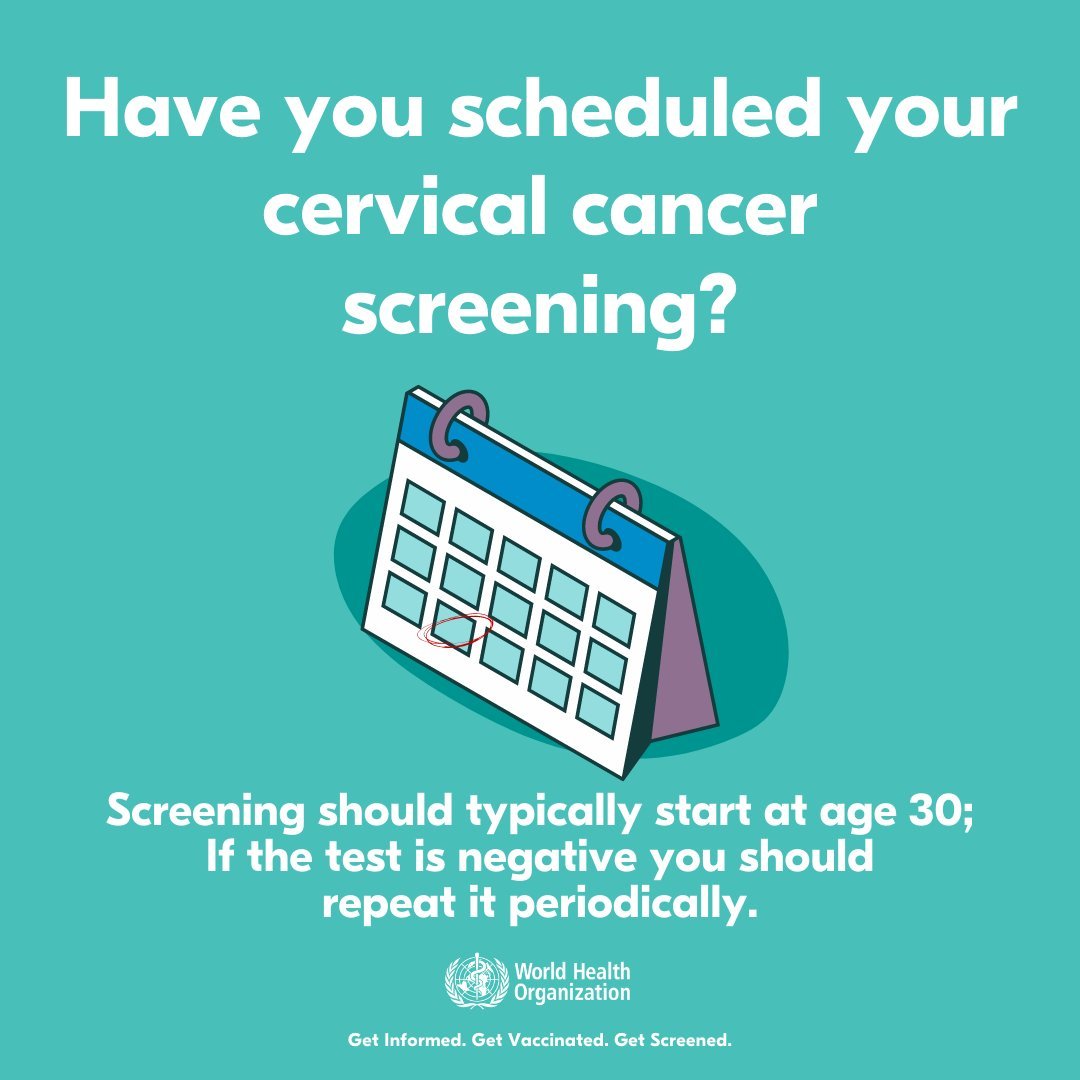
🆕 recommendations for screening and treatment to prevent #CervicalCancer will help countries take the next step towards elimination. Cervical #cancer is the 4th most common cancer among women worldwide 🌎🌍🌏
👉 bit.ly/3jNfkki
👉 bit.ly/3jNfkki

#CervicalCancer is almost entirely preventable and treatable with the HPV vaccine, screening and treatment - but in 2020, more than half a million women 👩🦰👵🧕 contracted the disease, and over 340 000 women died as a result.
This must change.
👉 bit.ly/3jNfkki
This must change.
👉 bit.ly/3jNfkki

The 🆕 recommendations have 🔑 updates for countries working to meet the life-saving targets set out in the WHO Global Strategy to Accelerate the Elimination of #CervicalCancer by 2030:
🎯70% of women are regularly screened
🎯90% of women with the disease receive treatment
🎯70% of women are regularly screened
🎯90% of women with the disease receive treatment

For all women, the 🆕 #CervicalCancer guidelines now recommend the HPV DNA 🧬 test as the primary method for cervical screening.
This detects the high-risk strains of the human papillomavirus (HPV) that cause almost all cervical cancers.
👉 bit.ly/2TwEyIZ
This detects the high-risk strains of the human papillomavirus (HPV) that cause almost all cervical cancers.
👉 bit.ly/2TwEyIZ

The human papillomavirus (HPV) causes more than 9 in 10 cervical cancers.
With appropriate health sector support, HPV self-sampling can help improve screening rates since it is:
✅Easy
✅Convenient
✅Private
✅Less painful
✅Cheap
#SelfCare
bit.ly/3jNfkki
With appropriate health sector support, HPV self-sampling can help improve screening rates since it is:
✅Easy
✅Convenient
✅Private
✅Less painful
✅Cheap
#SelfCare
bit.ly/3jNfkki
#CervicalCancer data reflect staggering inequalities. Nearly 9⃣0⃣% of deaths occur in low- and middle-income countries, where access to public health services is limited and screening and treatment for the disease have not been widely implemented.
👉 bit.ly/3jNfkki
👉 bit.ly/3jNfkki

Women who are immunocompromised, such as those living with #HIV, are more likely to have persistent HPV infections & a more rapid progression to pre-cancer & #cancer. The 🆕 guidelines incl. additional recommendations specifically for 👩🦰 living with HIV
👉 bit.ly/3jNfkki
👉 bit.ly/3jNfkki

All adult women 👵🧕👩🦰👩⚕️ should undergo periodic screening to detect pre-cancer changes in the cervix which, if untreated, can develop into #CervicalCancer.
👉 bit.ly/3jNfkki
👉 bit.ly/3jNfkki

In #Nigeria 🇳🇬, WHO supports #CervicalCancer elimination by:
🧾helping develop & implement a national plan to fight the disease
🏥building health sector capacity
👩🏾⚕️training >1000 care providers & health officials
✅providing guidance & treatment tools
👉 bit.ly/3hETeOc
🧾helping develop & implement a national plan to fight the disease
🏥building health sector capacity
👩🏾⚕️training >1000 care providers & health officials
✅providing guidance & treatment tools
👉 bit.ly/3hETeOc
• • •
Missing some Tweet in this thread? You can try to
force a refresh











